Want to Support Wildlife Conservation in Africa? Start by Going on a Virtual Safari
During the Covid-19 pandemic, the beleaguered safari industry is livestreaming game drives to draw attention to its cause
/https://tf-cmsv2-smithsonianmag-media.s3.amazonaws.com/filer/26/71/26714edf-5bff-4646-9c40-54aeaaca4db5/ross_couper_safari-main.jpg)
As of this August, more than 90 percent of safari tour operators have reported losing 75 percent or more of their annual business due to Covid-19. The pandemic has dealt a devastating blow to an industry that was booming just six months earlier.
As country after country went into lockdown and emergency quarantine protocols were put in place, lodges had to put a halt to safaris—not just because customers weren't making new reservations, but also because scheduled safaris were consistently canceled. Tony Mobile Safari in Botswana lost more than 150 expected customers. Mankwe Wildlife Reserve in South Africa saw every customer cancel. Mofeg Travel and Tours in Ghana normally operates seven tours annually; this year, it was only able to have one. And tourists aren't the only ones affected by the safari industry's pause.
Jarryd du Preez, a safari ranger at South Africa's Phinda Private Game Reserve for tour company &Beyond, says that lodge and safari company employees across Africa—most of whom are locals from rural communities—are suffering from the fallout, which means their family and friends are struggling, too.
“They’re supporting themselves, they’re supporting their parents, they’re supporting their sister’s kids, they’re supporting their other sister’s kids,” says du Preez, of safari employees. “There’s a rule of thumb in Africa that if you’re able to support one person in the community financially, ten people are benefitting, because that’s just how they are culturally. [About] 80 percent of the jobs and the income of these communities comes from reserves.”
Conservation efforts are suffering massively. The majority of safari lodges and tour companies reinvest their income into conservation, things like vaccinating cheetahs and de-horning rhinos so poachers do not kill them. Without guests paying for the tours, those efforts have virtually stopped. Poaching has seeped into tourist hot spots throughout the continent, like northwest South Africa and rhino-heavy regions in Botswana, and reserves and conservation centers are hemorrhaging money. Home to 291 animals, the Uganda Wildlife Conservation Education Centre, uses its revenue (only about $30,000 in 2018) to care for and feed the animals. This organization, as an example, is now facing a shortfall of $50,000.
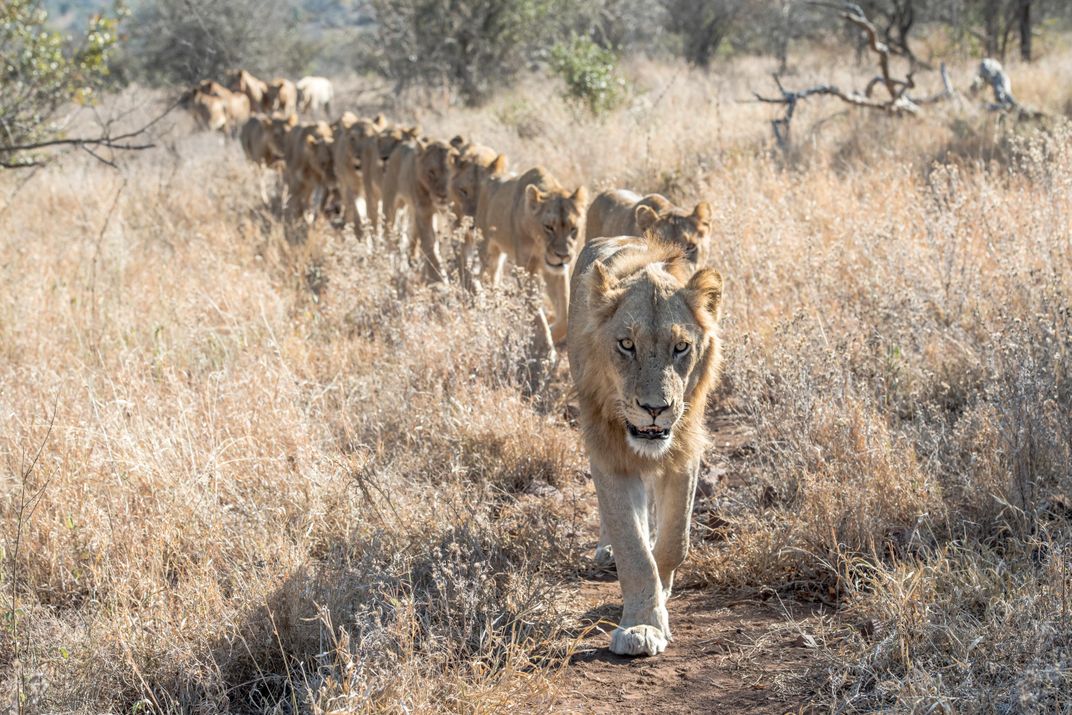
To make up for some of the missing income, and to bring much-needed attention to conservation efforts right now, many safari companies have pivoted to virtual experiences, whether it’s watching a recorded safari with a live host or riding along in real-time on social media. &Beyond has begun to charge a fee for some of its virtual programs, generating $250 per experience per person, which is immediately put toward conservation needs and helping the local communities get food and personal protection equipment for the virus. Others, like Singita, a conservation-focused game lodge company operating 15 lodges and camps throughout South Africa, Zimbabwe, Tanzania, and Rwanda, hope that the virtual offerings will inspire people to support their nonprofit conservation partners.
“The Covid-19 pandemic is [putting] conservation under enormous pressure,” says Singita’s chief marketing officer Lindy Rousseau in a press statement. “If tourism collapses, the ripple effect could threaten to wipe out decades of proactive conservation work on the continent. If ecotourism stops funding the conservation work of nonprofit partners, the likelihood of illegal hunting and poaching increases.”
Du Preez is hopeful, though, that the reach of virtual safaris will lead to a positive environmental mindset that will help in the long-term.
“One of the things that’s really fantastic about these virtual offerings is that we are able to engage with people who could never afford to come to Africa, who could never afford to go on safari,” he says. “But every single person out there can make a difference to wildlife and conservation. And I do believe that these virtual safaris, without a doubt, have made people more conscious about the environments around them.”
Even when you can’t be there in person, these companies are offering virtual safaris and game drives to boost awareness about conservation.
&Beyond Connect
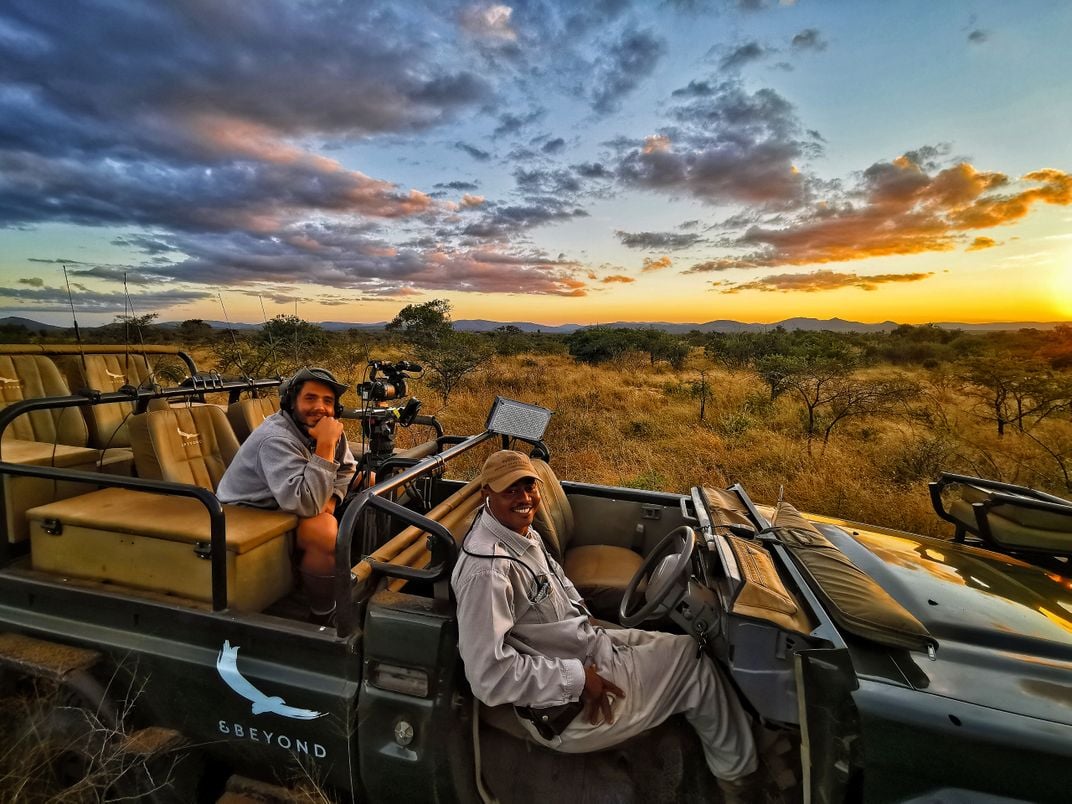
&Beyond has introduced a whole slate of virtual offerings for visitors who are currently unable to make it to the company’s 29 lodges and two reserves throughout 13 African countries, including Botswana, Mozambique, Namibia, South Africa and Zanzibar. Called &Beyond Connect, it allows would-be guests of the company to book virtual safaris in the Phinda and Ngala Private Game Reserves with rangers, follow live daily game drives on Instagram, and watch regularly scheduled television programs about safari destinations and conservation. The twice-daily livestreamed game drives, where you can see everything from cougars to elephants, are produced in conjunction with wildlife broadcasting experts WildEarth. Viewers are able to interact with the guides by asking questions through comments, sometimes even asking them to turn a specific way in the vehicle to look at something for a bit longer. For the private safari experiences, which range from $200 to $250, guests can chat directly with the guides and get a deeper interpretive look into what appeared during the game drive.
Tune in: Twice daily on &Beyond’s website, YouTube and social media from 6:30 a.m. – 10:30 a.m. Central Africa Time or 12:30 a.m. - 4:30 a.m. EST (sunrise dependent) and 3:00 p.m. – 6:00 p.m. CAT or 9 a.m. - 12 p.m. EST (sunset dependent).
Singita
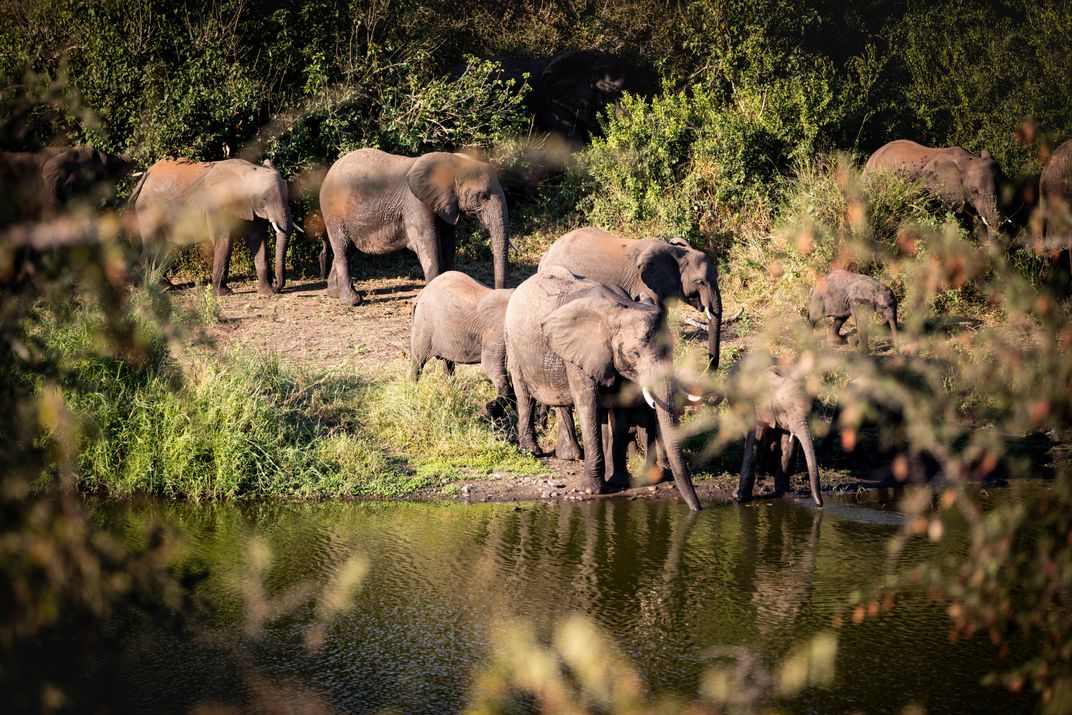
Photographer and safari guide Ross Couper leads Singita’s live virtual game drives through the Sabi Sand Game Reserve in South Africa. The company was one of the earliest adopters of virtual game drives, and saw engagement in the livestreams increase by more than 400 percent just days after airing the first one the week of March 23. Now, the company also streams live safaris from the Serengeti in Tanzania. Viewers can interact with Couper through Instagram, where they’ll watch the livestreams and virtually encounter lions, rhinos, baby elephants, and more. The safari live-streams are free, but if you'd like to contribute monetarily, make a donation to Singita's Eastern Black Rhino Reestablishment Project, which aims to boost the population of critically endangered black rhino in the Serengeti.
Tune in: Sign up on Singita’s Instagram for the "notify me" setting to receive push notifications whenever Singita goes live with a game drive.
Tswalu
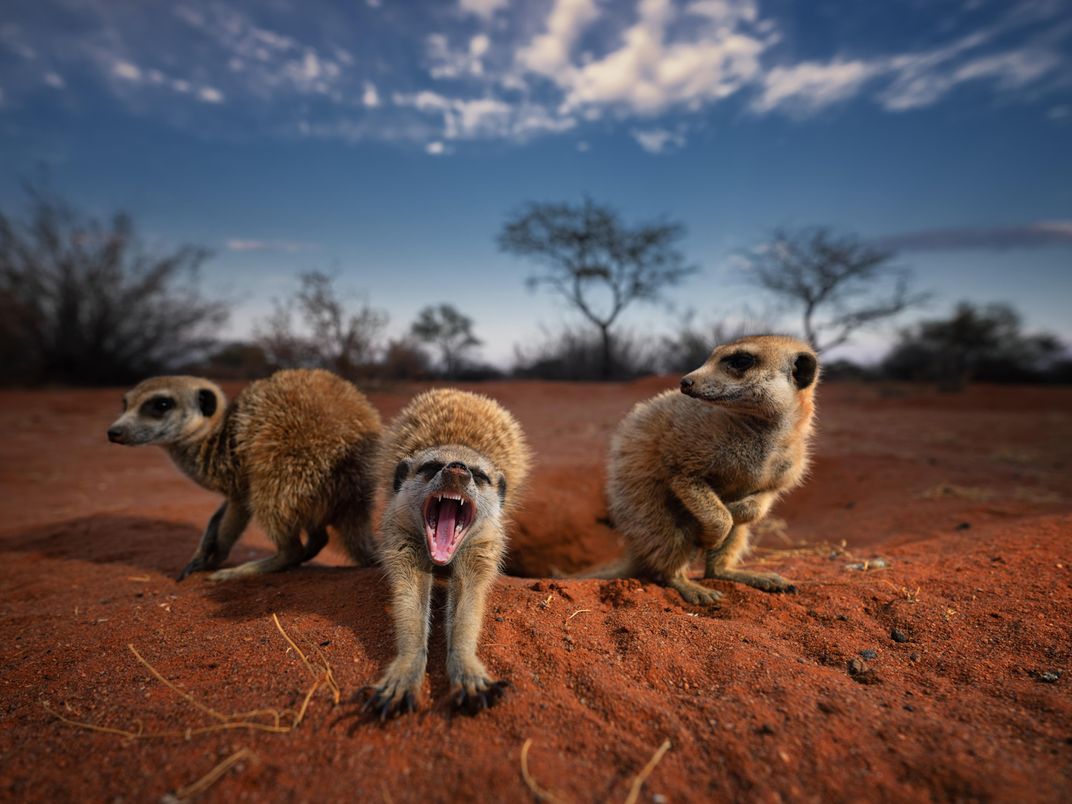
Like &Beyond, Tswalu Kalahari—the largest privately owned reserve in South Africa at 400 square miles—is partnering with WildEarth to offer live game drives. The live show, called EcoLive, streams twice daily (at sunrise and sunset local time) on Tswalu’s website and social channels. In August, viewers watched a leopard and its cubs, a pair of Southern pale chanting goshawks, giraffes, and more. The drives are interactive as well; questions asked on social platforms are answered live. Those interested in becoming involved in wildlife conservation can head to the Tswalu Foundation's website.
Tune in: Sunrise safaris happen between 6:30 a.m. – 9:30 a.m. Central African Time (CAT), 7:30 a.m. – 10:30 a.m. East African Time (EAT) and 12:30 a.m. – 3:30 a.m. Eastern Standard Time (EST). Sunset safaris occur from 3:00 p.m. – 6:00 p.m. CAT, 4:00 p.m. – 7:00 p.m. EAT and 9:00 a.m. – 12:00 p.m. EST.
Virgin Limited Edition
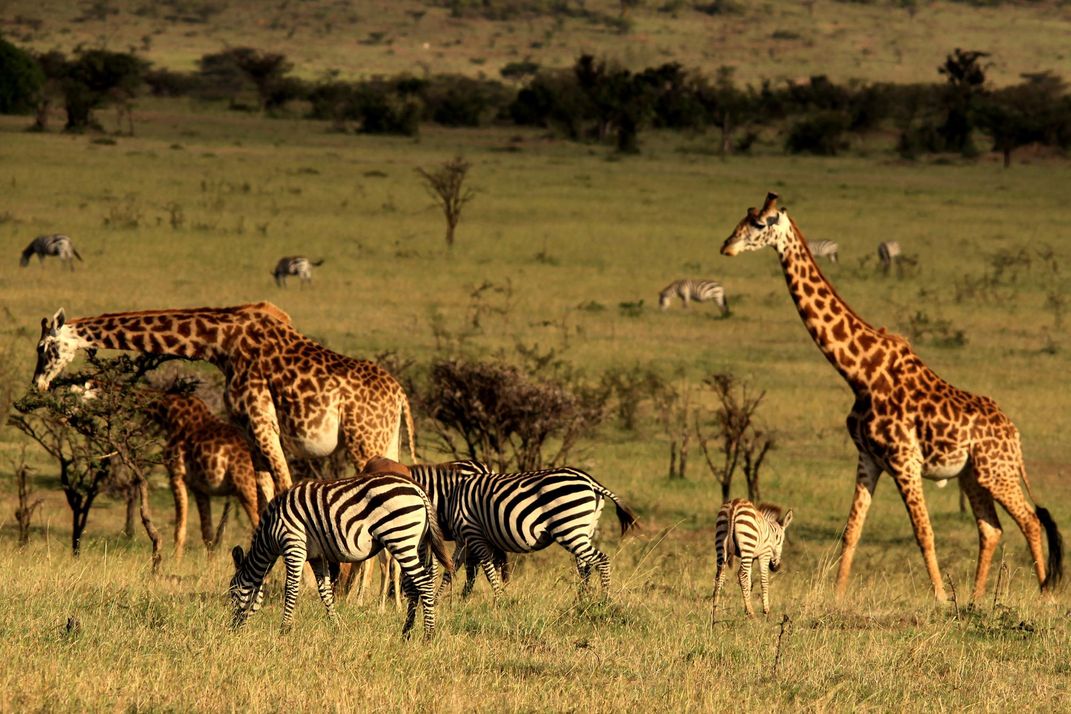
Richard Branson’s Virgin Limited Edition hosts live game drives on Facebook every Wednesday at 3 p.m. local time, from both its Mahali Mzuri camp in the Maasai Mara of Kenya and the Ulusaba camp in the Sabi Sand Reserve in South Africa. Viewers can add to the comments, and the rangers will read and answer questions. So far, animal sightings on the virtual safaris have included elephants, giraffes, buffalo and cheetahs. Many of the viewers also interact among themselves; they tend to watch every week and are greeting old safari friends and making new ones in the comment section.
As of this writing, Virgin Limited Edition’s virtual game drives are focusing on the annual Great Migration—trekking out to Mahali Mzuri to catch a glimpse of up to two million wildebeest, zebra, gazelle, eland and topi as they pass through, as well as the lions, hyenas and leopards searching the crowd for an easy meal. Since the game drives are free to watch on social media, viewers can make a donation to Pride 'n Purpose, Virgin Limited Edition's charity for disadvantaged families near Sabi Sand.
Tune in: The Ulusaba safari takes place every Monday at 3 p.m. BST (10 a.m. EST) and the Mahali Mzuri safari happens on Wendesndays at 3 p.m. BST (10 a.m. EST) on Virgin Limited Edition’s Facebook page.
Africam.com and Explore.org
While not the same as interactive safari experiences, Africam.com and Explore.org are both home to a host of live webcams watching wildlife throughout Africa. You can log on anytime to catch a glimpse of whatever creature might be on screen at the moment. Africam’s locations include the Olifants River, Naledi Dam and Tembe Elephant Park, all in South Africa. Explore.org aggregates about two dozen different livestreams, including the Mpala Research Centre in Kenya, the Gorilla Forest Corridor in the Democratic Republic of the Congo, and Rosie's Pan in South Africa.
/https://tf-cmsv2-smithsonianmag-media.s3.amazonaws.com/accounts/headshot/JenniferBillock.png)
/https://tf-cmsv2-smithsonianmag-media.s3.amazonaws.com/accounts/headshot/JenniferBillock.png)